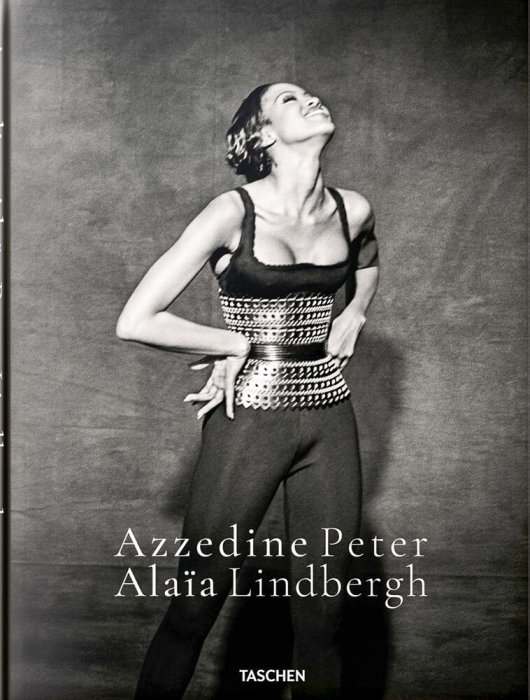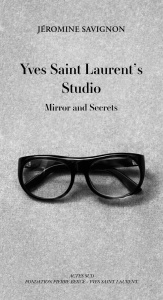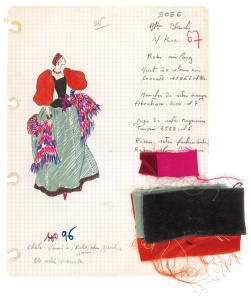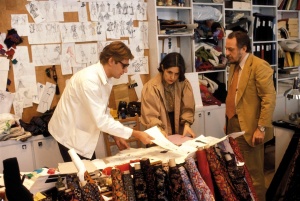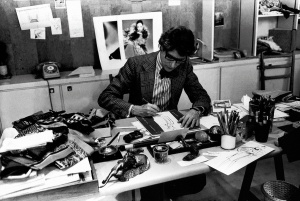Benn98
Well-Known Member
- Joined
- Aug 6, 2014
- Messages
- 42,582
- Reaction score
- 20,742
As Needed For Pain - Dan Peres
Spent half of my Sunday reading it and while it was by no means a disappointment or poorly written, I just came away half full. Which was pretty much my opinion of his tenure at Details. Half full. There was always that one part, that you couldn't quite put your finger on, that was missing. The images were solid, the content seemed solid, and yet.....I dunno. It's not the type of magazine that stood the test of time when you flip through it now, let me put it that way. But the ideas seemed great back then.
Anyway, for the book, it's an autobiography in the traditional sense. It starts with his cushy, sheltered childhood, the usual puberty swings through the coming of age part, and really lingers on all the awkward bits that made me squirm. It was only towards the end that I realised how necessary that was because all of it really shaped what ultimately led to his addiction with pills.
I found it really interesting, this addiction to painkillers. Probably because that sort of thing isn't really all that common in the UK and I usually associate addiction with hard narcotics. And yet the trajectory was very similar and likely lasted as long as it did because probably opioid addiction was really hard to spot back then. Either that or they were everyone around him was like Tom Ford who caught onto him yet didn't say or do anything except subtle hints.
I kept wondering why Dan appeared on all these really tacky and tabloidy talk shows to plug his book. Shows like Dr Phil and other condescending hosts who had zero clue who he was or the magazine he edited. You could tell by the generic introductions ('Let's welcome the magazine editor...), and once they discovered that he held a position of power and influence, came the shady subtext in most of their comments and questions (see how the cold and evil fashion industry very nearly swallowed this nice guy up? But he fought and came out victorious!).
I kept wondering why, whenever he wrote about his addiction throughout the book, it seemed like I was reading a wordy thinkpiece on Bustle? Well, maybe because it was created for the Bustle reader! The narrative of his book, the diminishing of his career achievements, the movie script-like layout of the chapters.
But basically what Dan Peres is saying with this book is that ever since he took office at Details he hadn't been sober much and so you have to actually wonder, regardless of his affliction, how much credit would someone in such a position really deserve for all the accomplishments that he got? His direction and vision for the magazine were covered in less than one page, the only parts which stood out about his time at CN were the dreaded monthly meeting when he had to present his magazine to Si Newhouse whom he admired from afar. And that was not only anxiety-driven, but also a need to be validated by Si.
That's such a stark contrast to ALT, for instance, who razed the earth for Anna and his job, shunned sex and love and got handed scraps in return. ALT, who is the posterboy of how bad it is when you're too loyal and remain in the same position for too long.
Whereas Dan's professional life seemed to show how equally bad it is to get too much, too soon, and too easily. The quotes that encapsulate his career and strategy, not that he had any to begin with:
On his job as a Paris correspondent at W: “I was hardly responsible, and if I made it into the office before eleven A.M., it was a shock to those who’d already been there for hours.
On getting the Details job: “It was the ideal job for me—high profile enough to make me feel important, but extremely light on responsibility. I wasn’t ready for any real responsibility.”
I do sympathise with his personal struggle but can't begin to relate to his career and his role in it. The guy quickly rose to the ranks at WWD, mentored by Patrick McCarthy (who btw is the only male role model of note in this entire book) and contributed to and coaxed designers for W, before his 30th he was editor in chief of a full-fledged men's magazine with a large demographic and significant amount of impact. But as the reader, you pick all these clearly enviable achievements up in bits and pieces which reads to me as if he never wanted it.
I think he comes across as a nice guy and the book does touch on some sore points like how children can be vicious, how much more ingrained male body image and angst really are, and how easy it is for opioid addiction to go undetected even by doctors. I did feel sad when I browsed his pictures flanked by celebrities during his time at Details because he looks exactly how he described himself in the book. Sad, lost, depressed. Thankfully he got help and support because the epiphany came at a crucial time when his wife gave birth to their first son.
I bet this book will get optioned for a film within the next few years. It has all the earmarks of a story of self-redemption that the masses will lap up.
Spent half of my Sunday reading it and while it was by no means a disappointment or poorly written, I just came away half full. Which was pretty much my opinion of his tenure at Details. Half full. There was always that one part, that you couldn't quite put your finger on, that was missing. The images were solid, the content seemed solid, and yet.....I dunno. It's not the type of magazine that stood the test of time when you flip through it now, let me put it that way. But the ideas seemed great back then.
Anyway, for the book, it's an autobiography in the traditional sense. It starts with his cushy, sheltered childhood, the usual puberty swings through the coming of age part, and really lingers on all the awkward bits that made me squirm. It was only towards the end that I realised how necessary that was because all of it really shaped what ultimately led to his addiction with pills.
I found it really interesting, this addiction to painkillers. Probably because that sort of thing isn't really all that common in the UK and I usually associate addiction with hard narcotics. And yet the trajectory was very similar and likely lasted as long as it did because probably opioid addiction was really hard to spot back then. Either that or they were everyone around him was like Tom Ford who caught onto him yet didn't say or do anything except subtle hints.
I kept wondering why Dan appeared on all these really tacky and tabloidy talk shows to plug his book. Shows like Dr Phil and other condescending hosts who had zero clue who he was or the magazine he edited. You could tell by the generic introductions ('Let's welcome the magazine editor...), and once they discovered that he held a position of power and influence, came the shady subtext in most of their comments and questions (see how the cold and evil fashion industry very nearly swallowed this nice guy up? But he fought and came out victorious!).
I kept wondering why, whenever he wrote about his addiction throughout the book, it seemed like I was reading a wordy thinkpiece on Bustle? Well, maybe because it was created for the Bustle reader! The narrative of his book, the diminishing of his career achievements, the movie script-like layout of the chapters.
But basically what Dan Peres is saying with this book is that ever since he took office at Details he hadn't been sober much and so you have to actually wonder, regardless of his affliction, how much credit would someone in such a position really deserve for all the accomplishments that he got? His direction and vision for the magazine were covered in less than one page, the only parts which stood out about his time at CN were the dreaded monthly meeting when he had to present his magazine to Si Newhouse whom he admired from afar. And that was not only anxiety-driven, but also a need to be validated by Si.
That's such a stark contrast to ALT, for instance, who razed the earth for Anna and his job, shunned sex and love and got handed scraps in return. ALT, who is the posterboy of how bad it is when you're too loyal and remain in the same position for too long.
Whereas Dan's professional life seemed to show how equally bad it is to get too much, too soon, and too easily. The quotes that encapsulate his career and strategy, not that he had any to begin with:
On his job as a Paris correspondent at W: “I was hardly responsible, and if I made it into the office before eleven A.M., it was a shock to those who’d already been there for hours.
On getting the Details job: “It was the ideal job for me—high profile enough to make me feel important, but extremely light on responsibility. I wasn’t ready for any real responsibility.”
I do sympathise with his personal struggle but can't begin to relate to his career and his role in it. The guy quickly rose to the ranks at WWD, mentored by Patrick McCarthy (who btw is the only male role model of note in this entire book) and contributed to and coaxed designers for W, before his 30th he was editor in chief of a full-fledged men's magazine with a large demographic and significant amount of impact. But as the reader, you pick all these clearly enviable achievements up in bits and pieces which reads to me as if he never wanted it.
I think he comes across as a nice guy and the book does touch on some sore points like how children can be vicious, how much more ingrained male body image and angst really are, and how easy it is for opioid addiction to go undetected even by doctors. I did feel sad when I browsed his pictures flanked by celebrities during his time at Details because he looks exactly how he described himself in the book. Sad, lost, depressed. Thankfully he got help and support because the epiphany came at a crucial time when his wife gave birth to their first son.
I bet this book will get optioned for a film within the next few years. It has all the earmarks of a story of self-redemption that the masses will lap up.


